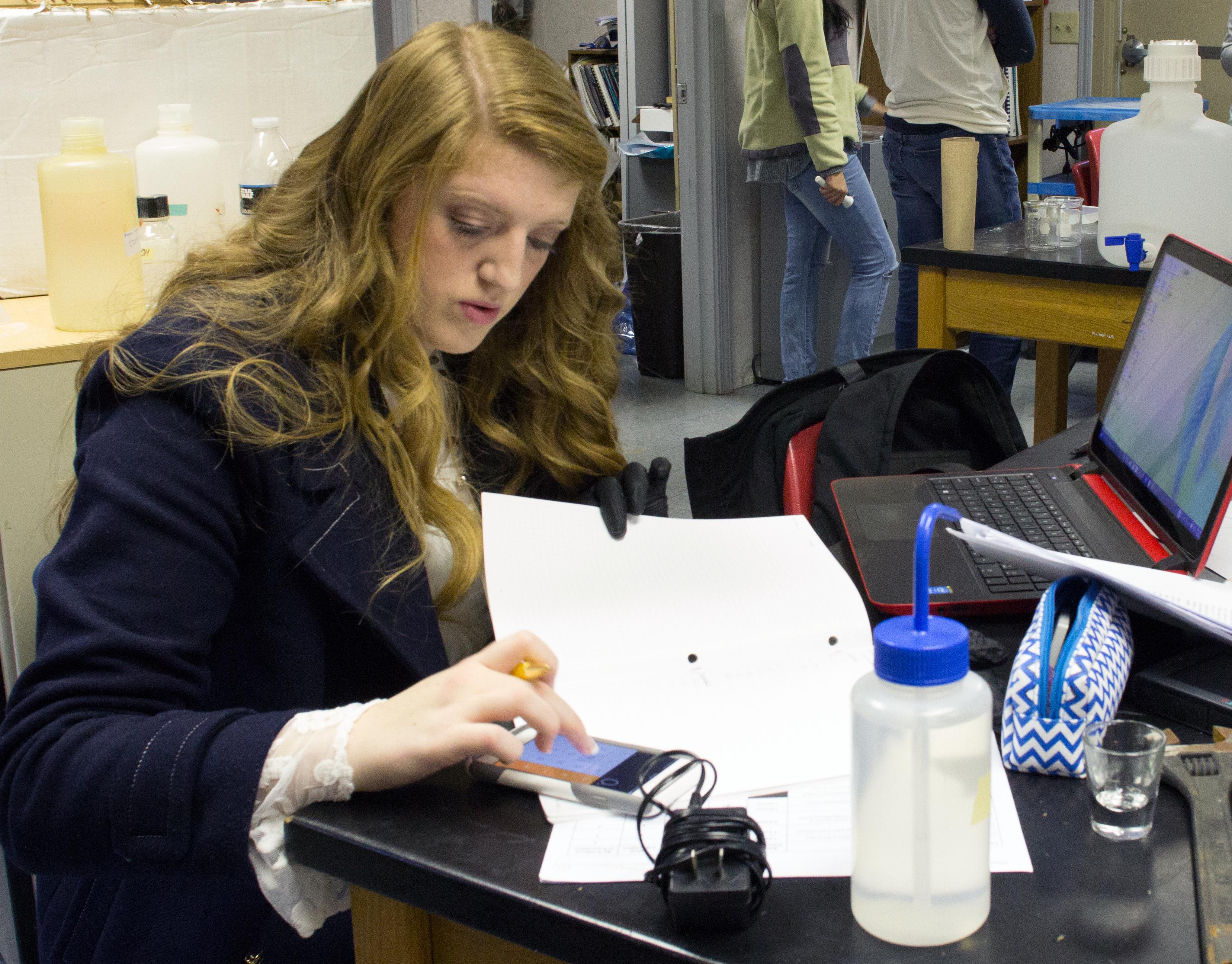Science and Technology Seminar and Project Courses
The junior year (SCT 198) of this course serves as an introduction to scientific and engineering projects. The process of research and design is the primary focus of the course. The class begins with an introduction to scientific research, and then discuss generation of project ideas, how to find appropriate project mentors, how to manage and analyze data, and how to communicate project results. Ethical issues in research are reviewed. Successful completion and presentation of a science or engineering project is required in order for credit to be granted for the course. The three earned credits for this course are awarded at the end of the spring semester. Experiences with independent research projects help students develop abilities to:
- Ask good questions
- Sift through information
- Collect and evaluate data and facts
- Analyze and reason
- Verify conclusions
- Problem solve and troubleshoot
- Communicate complex information effectively
- Develop research skills
- Complete long-term projects
- Expand and modify projects
- Integrate outside expertise from businesses, health care organizations, industries, as well as colleges and universities
- Present their findings and conclusions
Experience with independent research develops critical thinking and problem solving skills, skepticism and curiosity about the world, ability to acquire and apply knowledge, joy of discovery, persistence, time management skills, a strong work ethic, and intellectual integrity, as well as collaborative, leadership, and communication skills.
Course Content:
The junior year of the course addresses the following topics to familiarize students with the process of science and to hone necessary skills:
 Introduction to Scientific Research
Introduction to Scientific Research- Generation of Science Fair Research topics
- How to Search for References and Evaluate Their Reliability
- Mentor/Mentee Relationship and How to Choose a Sponsor
- Reference Citation Practice
- Lab Notebook Training
- Ethics in Science: Use of Human Subjects
- Ethics in Science: Use of Animal Models
- Science Fair Form Training
- Need for Objectivity in Science: Peer Review
- Data Analysis and Presentation: How to Add Error Bars to Graphs
- Practice Writing Abstracts
- Organization of Science Fair Board/Poster
- Effective Communication of Results and Project Presentation
The senior year of the course revolves around a seminar series called Spotlight Speakers: Mentoring through Narrative. Invited speakers discuss their personal experiences and significant points that led to their career selection or aspects that helped them become successful in a specific area of research or engineering. Guests speak about identifying and discovering individuals strengths, finding passions, the importance of failures, significant influential people and events, "aha" moments that affected their paths, reinventing themselves, etc. A goal of the Spotlight Speaker series is to provide scientists, professors, engineers, medical practitioners, and other industry experts an opportunity to speak with our students about their own experiences with research and projects. We believe this to be an effective way of demonstrating to students the limitless opportunities available to researchers. The lectures also present opportunities for further discussion of the process of science so that students can develop their understanding of the nature, struggles, and rewards of scientific investigations and engineering endeavors.
Project-related work:
Completion of an independent research project is critical to successful completion of the Science and Technology Seminar and Project courses. Many of the grades related to project work will be earned in January during project work days, therefore work in this course does not end in December as in most other SWVGS courses. The following are items are a significant portion of this course and will contribute approximately 50% of the points included in the final grade, which will be earned at the end of the spring semester:
- Timely submission and revision of your project idea
- Proper completion of International Science and Engineering Fair forms
- Research notebook
- Pre and post statistical consults
- Critical Essays
- Project Proposal Paper
- Submission of Project Title on SWVGS Science Fair Website
- Abstract
- Research paper
- Project display
- Science fair attendance during judging
- Science fair awards ceremony attendance
- Submission of a VJAS formatted paper
Many of the above items will be graded according to rubrics. Other items will have assigned point values and some of those may be earned in an all or nothing manner.
This site provides information using PDF, visit this link to download the Adobe Acrobat Reader DC software.
